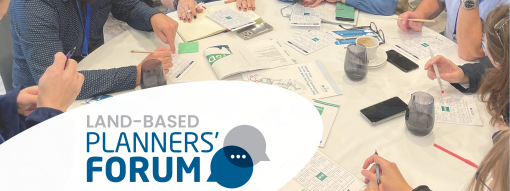Building spatial resilience in the Baltic Sea Region: What shared priorities unite spatial planners at the macro-regional level?
International crises such as the COVID-19 pandemic, the Russian invasion of Ukraine and increasing climate change issues has brought many new realities in the Baltic Sea Region. In these constantly changing times macro-regional spatial planning faces new challenges as new topics shift the focus of decision-making in the Baltic Sea Region, highlighting the importance of resilient spatial structures and communities. Latest PA Spatial Planning relevant events address the emerging topic of spatial resilience from different angles.
VASAB Committee on Spatial Planning and Development of the Baltic Sea Region (CSPD/BSR), which acts as the Steering Group for the land-based spatial planning issues, took place on 19-20 March in Tallinn, Estonia and discussed various spatial resilience topics. Nordregio representative Alberto Giacometti presented a project ESPON TERRES which aims to unpack territorial resilience to support spatial planning and urban development, strengthening the absorptive, adaptive and transformational governance capacities of European regions in the context of long-term multi-crisis trajectories. Challenges at EU East external borders were presented by Sandra Spule from Spatial Foresight, covering insights from projects Regio-Silience and CHANEBO.
The joint HELCOM-VASAB Maritime Spatial Planning Working Group acts as the Steering Group for PA Spatial Planning concerning Maritime Spatial Planning issues. Latest meeting on 7-9 April in Rostock, Germany addressed such spatial resilience topics as climate change mitigation. Another topicality is the revision process of the Guidelines for the implementation of ecosystem-based approach in Maritime Spatial Planning in the Baltic Sea area which are a significant element of the regional MSP framework. Revision of the Guidelines based on the experience gathered during the past MSP cycle is substantial contribution to the achieving of the overall goal of the Regional Maritime Spatial Planning Roadmap 2021-2030 – building a sound basis for an adaptive Maritime Spatial Planning process applying the ecosystem-based approach. The revision process begun in 2023 and is expected to end with the endorsement of the Guidelines in Autumn 2025.
MSP Planners’ Forum is a practical and informal dissemination and collaboration platform supporting ongoing national and regional MSP processes and implementation of MSP policy for national-level MSP practitioners. MSP Planners’ Forum meetings are held twice a year, and each meeting is dedicated to a topic that is chosen through a survey amongst participants to keep the meetings as relevant as possible. The group is around 20 participants, each of them representing their country’s (Denmark, Estonia, Finland, Aland, Germany, Latvia, Lithuania, Poland, Sweden) national-level spatial planning institution. 6th MSP Planners Forum held on 25 March online addressed maritime defence with presentations from Annika Koch on Example of dealing with defence issues in the Site Development Plan (North Sea) and Jaak Viilipus on National and regional approaches in managing hybrid threat in current situation on the Baltic Sea. Read the meeting notes here.
Based on the fruitful collaboration of MSP Planners’ Forum, Land-based Planners’ Forum project was launched in December 2024, which aims to enhance the capacity of BSR planners by fostering collaboration across all governance levels. This newly initiated network and platform — Land-based Planners’ Forum — will offer an informal, supportive space for sharing best practices and innovative solutions, empowering planners to build resilience and promote sustainable growth in both urban and rural areas. Until 2nd May land-based spatial planners working in local, regional, or national public authorities in Finland, Estonia, Latvia, Lithuania, Poland, Germany, and Sweden are invited to participate in a brief survey designed to explore the networking and collaboration needs of spatial planners in the Baltic Sea Region. Find out more here.
Reacting to Interreg BSR’s call for Project Platforms, PA Spatial Planning initiated and submitted two Project Platforms that have been selected for funding by the Monitoring Committee on March 5, 2025. Only 8 project platforms out of 23 submissions have been selected, and 3 of them are PA Spatial Planning relevant (Baltic PlaNet, SEABAS and BSR Urban Mobility). The project platforms will now step into the process of contracting, which would take up to three months. Platforms that have received funding and have been submitted by PA Spatial planning:
• Strategic Ecosystem-Based Planning for the Sustainable Future of the Baltic Sea (SEABAS Project Platform)
The SEABAS project platform aims to establish a Baltic Sea regional framework for integrating Strategic Environmental Assessment (SEA) into Maritime Spatial Planning (MSP), synthesizing prior outcomes to enhance the sustainable management of human activities at sea while promoting blue economy and biodiversity conservation.
• Baltic Climate-Resilient Coastal Planning Network (Baltic PlaNet)
The Baltic PlaNet project platform is a comprehensive initiative dedicated to enhancing the resilience of coastal communities in the Baltic Sea Region. By empowering municipalities to integrate climate change considerations into their spatial planning, the platform aims to safeguard both natural and urban environments.



